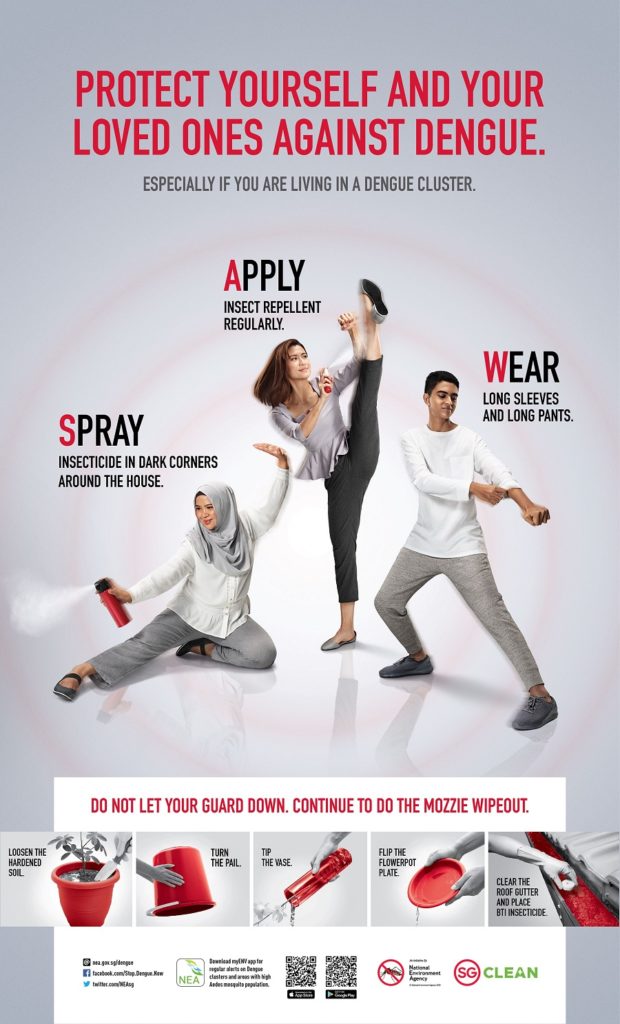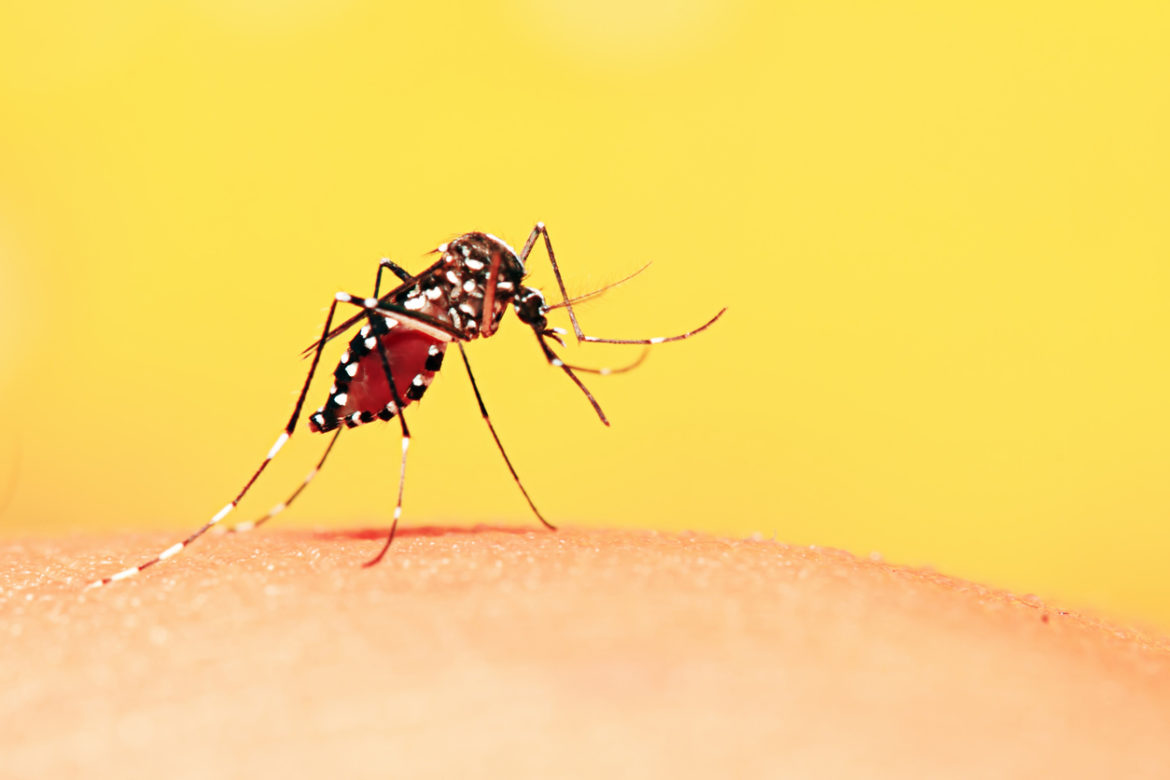Recently, Singapore has been facing a sharp increase in dengue cases. According to a report in The Straits Times, the number of cases has crossed the 8,000 mark in just the first five months of this year, far exceeding the 5,258 cases reported in all of 2021. As of the latest updated figures by the National Environment Agency (NEA), the number of reported cases for the week ending 13 May is 1,055 cases, an increase of 200 from the previous week. In addition to ongoing islandwide dengue inspections, NEA has intensified prevention and outreach efforts that will continue over the next few months.
With dengue cases rising sharply in Singapore, NEA has urged citizens to partake in an “urgent collective community effort” in order to fight the surge. Residents of JRTC are urged to take immediate action to reduce the mosquito vector population by routinely practising the Mozzie Wipeout to target common breeding habitats.
B-L-O-C-K – steps to the Mozzie Wipeout
- Break up hardened soil
- Lift and empty flower pot plates
- Overturn pails and wipe their rims
- Change water in vases
- Keep roof gutters clear and place BTI insecticide inside

In addition, if you stay in a dengue cluster area or see many adult mosquitoes around, do the additional “SAW” steps of the Mozzie Wipeout.
SAW – additional steps to the Mozzie Wipeout
- Spray insecticide in dark corners around the house
- Apply insect repellent regularly
- Wear long-sleeve tops and long pants
NEA strongly encourages members of the public to download the myENV app. The app will alert users when there is a dengue cluster or high mosquito population near their homes. Residents can also play their part in preventing cases from increasing further by cooperating with NEA officers when they come to their homes for regular inspections.
While the five largest dengue clusters (as of 13 May 2022) are not located within Jurong-Clementi, it is critical that residents continue to remain vigilant towards potential outbreaks near them.
Did you know…
- Dengue is not spread via human contact and can only be transmitted through the bite of a female Aedes mosquito.
- You are more likely to get bitten in the daytime as Aedes mosquitoes are diurnal (active during the day).
- It has been found that the Aedes mosquito’s favourite spot to bite a human is below their elbow/knee.
- You shouldn’t take aspirin or other painkillers when infected with dengue, as both dengue and painkillers thin your blood. Taking painkillers when sick with dengue may lower your platelet count even further.
- A vaccine to cure dengue has yet to be found.

